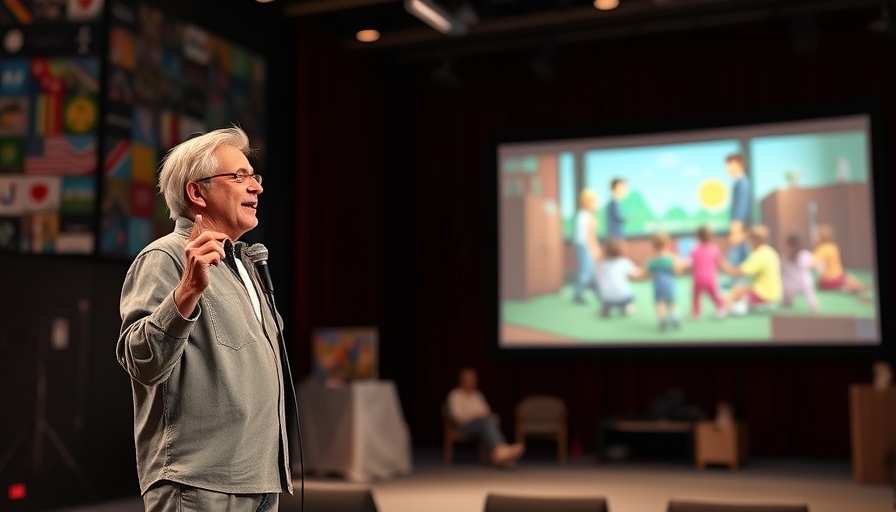
Understanding the Complex Dynamics of Family Acceptance
The recent correspondence to Dear Abby, where a mother expresses concern about her son's alleged sexual orientation and his distance from his homophobic father, highlights profound issues many families face regarding acceptance. Navigating such dynamics can be emotionally fraught, especially in today's socio-political climate where LGBTQ+ rights are still a matter of intense debate. The mother fears that her son, who she suspects is gay, is distanced from their father due to the father’s negative attitudes towards the LGBTQ+ community.
The Impact of Parental Attitudes on LGBTQ+ Youth
Research shows that parental acceptance significantly influences the mental health and well-being of LGBTQ+ youth. According to the Trevor Project’s National Survey on LGBTQ Youth Mental Health, those who experience high levels of parental support are significantly less likely to engage in suicidal behavior. This correlation underscores the need for open dialogue about sexual orientation within families, helping create an environment where acceptance flourishes instead of animosity.
What Families Can Do: Creating Safe Spaces
Families should strive to establish safe spaces that afford open discussions about sexual identity. This begins by addressing biases head-on. Parents who hold homophobic views must be encouraged to examine their beliefs critically, not only for the sake of their children but for their own growth as individuals. Conversations and educational resources about LGBTQ+ issues can aid in understanding and acceptance, diminishing the need for a child to feel they must choose between family loyalty and their identity.
The Role of Societal Attitudes
In the United States, the legislative landscape surrounding LGBTQ+ rights still bears traces of partisanship, often leading to a fractured understanding across communities. The ongoing debates regarding legislation around issues like marriage equality and workplace discrimination exemplify how political stances affect personal experiences. For instance, states that exhibit higher levels of discrimination often correlate with higher rates of mental health issues among LGBTQ+ individuals, as noted by various healthcare studies. The effects of these broader societal issues inevitably infiltrate family dynamics, putting pressures on both the youth and their relatives.
Why This Matters: The Ripple Effects on Democracy and Society
The issues surrounding LGBTQ+ rights are not just personal but are rooted in the core of democratic values. As seen in the evolving policies regarding same-sex marriage and protections, every legislative change echoes within families like those navigating this emotional landscape. This reflects broader societal questions about acceptance, equality, and civil rights. The political climate, characterized by partisan divisions, can heavily influence the personal lives of individuals, often demonstrating that political decisions turn into personal realities.
Personal Stories Reflect Broader Trends
Many individuals resonate with this story of conflict and self-identity, fostering empathy and understanding. Sharing personal experiences of acceptance or rejection can create avenues for dialogue and compounding support networks. Just as in the referenced letter to Dear Abby, many narratives highlight the variety of reactions families encounter when confronting the realities of LGBTQ+ identities. The normalization of such conversations can promote healthier life choices and outcomes for youth.
Moving Forward: Bridging the Gap
As the mother grapples with the complex emotions tied to her son’s potential identity, her challenge opens dialogue not just in her household but within broader societal structures. It illustrates why recognizing and reflecting upon personal biases is crucial, not just for familial harmony but also for progress toward a more inclusive society. The involvement of communities, experts, and educators can facilitate this understanding, route family dynamics towards stability, ultimately fostering an environment where every individual feels valued and accepted, regardless of their sexual orientation.
Conclusion
Ultimately, the intersection of personal development and professional discourse surrounding LGBTQ+ rights compels us to confront our biases. Open, honest discussions within our families can lead to acceptance and understanding, reinforcing the fundamental democratic principle of equality for all. Families navigating these waters have not only the opportunity to heal but also the responsibility to foster change in society at large.
 Add Row
Add Row  Add
Add 




Write A Comment